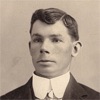Was my therapist babying me?
When I was 13, I had about a year of therapy. My main gripe with it was having to lie about my "feelings" just to get the therapist to believe me. (Ironic?) But this thread is about something else. Throughout therapy, I had to draw things; I thought it was odd for a 13-year-old to do art therapy,---it struck me as something for a 6-year-old---but I went along with it. I had to do the usual "House-Tree-Person" test, as well as drawing out my nightmares. The less unpleasant parts of drawing were diagrams, many of which were floorplans, flowcharts, and electric circuit charts.
Now, I can't draw to save my life, unless it's a diagram. Most of my drawings looked like crap, especially people and animals. However, she'd dump boatloads of praise on me, saying how great my drawings looked. What the hell? Maybe it was my paranoia talking, but that didn't sound right at all! Surely, an adult with a degree in psychology could tell a good drawing from a bad one. It seems like she was, pretty much, lying to me. Then again, I lied to her about my feelings all the time, so I guess it's pretty fair.
* Did she expect me to believe the praise?
* Was it some kind of a hidden nuance of a therapy method she was using?
* Was it a misguided attempt to boost my self-esteem? (she did the opposite, by acting like she thinks I'm naive)
* Did she think I wouldn't know it's not true?
* Are other drawings she's seen so horrible, that mine look good in comparison?
* Is it actually possible she was telling the truth?
* Is she required by her job to only say good things about her patients' drawings?
* Are there other hidden motives I'm not aware of?
It'd be far better if she said something like this: "It's not an art class. You are not graded on your drawing. You can have your own opinion, but it's still good enough for the activity/exercise we're doing." This is both complimentary and true. But it would actually make sense, and most NT shrinks don't like to say things that make sense.
I think she was probably taking a diplomatic route. I agree that hollow praise just feels patronizing, especially when it's so transparent. However, I suspect psych professionals have their own minefields to navigate, and it's not always easy to gauge which approaches are appropriate when, or who will react well to more nuanced comments. "This is the best stick figure I've ever seen!" is probably a safer route than saying "well, this isn't art school" and only then finding out that the person in question has a hypersensitivity to criticism. I'm not saying you do, but such methods often need to be broadly applicable.
My personal experience with psych professionals suggest that some of their usual approaches don't pass the often keen BS detectors of aspies. Then again, maybe she just has terrible taste in art.
For the record, I can't draw to save my life, either.
_________________
I'm bored out of my skull, let's play a different game. Let's pay a visit down below and cast the world in flame.
Art therapy sounds nice... but I'm an artist, hah. That is my coping mechanism.
As for the praise... I never know how to take it. Even when the person claims they are truly sincere in their praise, I don't like it, it makes me feel bad, and I never know if I can trust them. They always look at me weird when I ask for constructive criticism rather than praise.
_________________
Your Aspie score: 171 of 200
Your Neurotypical (non-autistic) score: 40 of 200
As for the praise... I never know how to take it. Even when the person claims they are truly sincere in their praise, I don't like it, it makes me feel bad, and I never know if I can trust them. They always look at me weird when I ask for constructive criticism rather than praise.
I have no problem with genuine praise. Like, when I'd dancing with a woman and finish the song with a nicely executed dip, and she starts gushing compliments, then I feel great. Because I know I'm good at that. But when I'm drawing a family of different animals, where I can't even get their heads the right shape, and a therapist says it's a good drawing, I just have to call BS on that. Come on, really? At least I got the cows to look right, thanks to the pervasive Chicago Bulls marketing in the mid to late 1990's.
I can overlook it if she's required to praise me by the state licensing regulations. But when she expects me to believe a lie, I lose all trust. Then again, I already said I lied to her about my feelings all the time. Pot calling kettle black, I guess.
Therapists, just like people in general, often lay on a bit of baloney to boost self-confidence. I have two objections to it, both of which show how Aspie I am when it comes to how I prefer people to behave:
First, a lot of the time it fails to convince, and then it can undermine trust and respect. This can be particularly true when the subject is an Aspie, who may take the deception more to heart. A neurotypical might be more of the opinion that BS makes the world go round, and focus more on the fact that the false compliment-giver at least wanted them to feel good about themselves.
Second, if it's believed, the subject can end up with a falsely high opinion of themselves, which may set them up for a fall, if reality happens to smack them in the face later. Against this is the argument that the benefits of the improved self-confidence might outweigh the downside of risking a fall. To my mind, it would often take a very clever, well-informed person to know when to lie and when not to. Your therapist seems to have failed in that respect, at least in the instance you described.
I can see why you'd think of it as babying you - your ability to detect the lie was underestimated, which must have felt like he'd treated you like a gullible small child. But it's also possible that it was just an innocent mistake due to him not knowing you well enough. Schmooze and social lies are so commonplace that I think they must work on most people, even though they usually look like disingenuous crap to me.
Well, an "innocent mistake" like this is pretty unacceptable for someone who had years of schooling, plus interning, in psychology. Surely, a 13-year-old is not going to believe that fox resembling a cat with oversized ears constitutes a good drawing. And when I tried to tell her that her actions are making me feel patronized, she always looked at me with that same patronizing smile. Kind of like: "Isn't that cute! He said a big word like 'patronized'." I saved face by changing the subject: fabricating test anxiety, and asking for help with it.
Well, an "innocent mistake" like this is pretty unacceptable for someone who had years of schooling, plus interning, in psychology. Surely, a 13-year-old is not going to believe that fox resembling a cat with oversized ears constitutes a good drawing. And when I tried to tell her that her actions are making me feel patronized, she always looked at me with that same patronizing smile. Kind of like: "Isn't that cute! He said a big word like 'patronized'." I saved face by changing the subject: fabricating test anxiety, and asking for help with it.
OK, with the new information you've supplied, it does look like she was patronising you.









